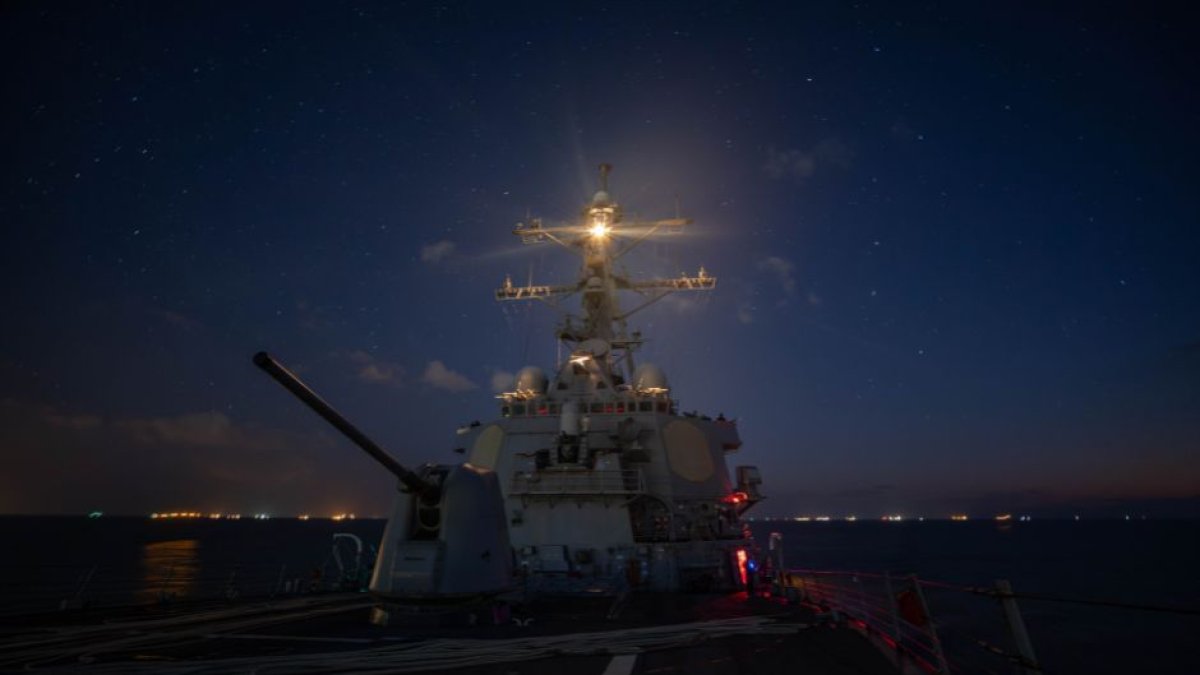U.S. strikes against Houthi targets in Yemen
The actions come after a new wave of maritime attacks by the terrorist group, which a week ago succeeded in damaging a ship carrying fertilizer and another carrying grain.

(U.S. Navy / Mass Communication Specialist 2nd Class Aaron Lau)
The United States and the United Kingdom launched a new strike against Houthi targets in Yemen on Saturday, the fourth air offensive in response to missiles and drones launched by the terrorist group against ships in the Red Sea, the Mandeb Strait and the Gulf of Aden.
U.S. Defense Secretary Lloyd Austin reported that U.S. and British forces struck eight targets, ranging from subterranean weapons depots and defense systems to a helicopter. The offensive was supported by Australia, Bahrain, Canada, Denmark, the Netherlands and New Zealand.
"We will continue to make clear to the Houthis that they will bear the consequences if they do not stop their illegal attacks," Austin said in a statement, in which he also recalled that Iran is behind the rebel organization. In a statement reported by the official Iranian news agency, INRA, the Houthis vowed to continue their attacks as long as "the attacks on Gaza do not stop and the siege of the Palestinian people continues." Iran condemned the offensive and accused London and Washington of "escalating tensions and crises in the region."
In a statement, the U.S. Central Command (CETCOM) assured that 18 airstrikes had been carried out at 11:50 p.m. local time. Hours earlier, the U.S. destroyer USS Mason (DDG 87) had taken down an anti-ship ballistic missile launched by the Houthis which, according to CENTCOM, was aimed at a U.S. chemical tanker.
The Rubymar spill
A week ago, terrorists managed to hit a ship carrying 41,000 tons of fertilizer in the Red Sea. The Belize-flagged, British-owned Rubymar carrier was anchored but "slowly taking on water," CENTCOM reported Saturday. The loss of its cargo "caused an 18-mile oil slick."
A U.S. official told CNN that sailing conditions and the risk of another Houthi attack complicated the task of towing the vessel to a nearby port.
The crew was successfully evacuated, Deputy Pentagon Press Secretary Sabrina Singh said in a news conference Thursday. Singh maintained that "the leakage of all the fuel that it's carrying" by the vessel was creating an "environmental hazard."
The spokeswoman also acknowledged that in recent days the Houthis had stepped up their offensive. She also argued that their attacks were harming Yemenis themselves, as evidenced by the leak of hazardous material from the Rubymar and another recent attack on a ship carrying grain for Yemen's "starving population."
From the official account of new Yemeni Prime Minister Ahmad Awad bin Mubarak, it was announced that an emergency team has been set up to deal with the "Rubymar crisis."

























